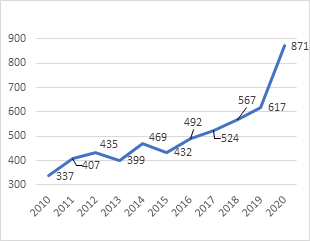A new GLO Discussion Paper reveals selection in characteristics, a strong role for soft factors like social ties and sociocultural integration, and a faint role for economic factors.
GLO Discussion Paper No. 930, 2021
Longing for Which Home: Evidence from Global Aspirations to Stay, Return or Migrate Onwards – Download PDF
by Bekaert, Els & Constant, Amelie F. & Foubert, Killian & Ruyssen, Ilse
GLO Fellows Amelie F. Constant & Ilse Ruyssen, and GLO Affiliate Killian Foubert

Amelie Constant 
Killian Foubert
Author Abstract: Aspirations provide the underlying dynamics of the behavior of individuals whether they are realized or not. Knowledge about the characteristics and motives of those who aspire to leave the host country is key for both host and home countries to formulate appropriate and effective policies in order to keep their valued immigrants or citizens and foster their (re-)integration. Based on unique individual-level Gallup World Polls data, a random utility model, and a multinomial logit we model the aspirations or stated preferences of immigrants across 138 countries worldwide. Our analysis reveals selection in characteristics, a strong role for soft factors like social ties and sociocultural integration, and a faint role for economic factors. Changes in circumstances in the home and host countries are also important determinants of aspirations. Results differ by the host countries’ level of economic development.

GLO Discussion Papers are research and policy papers of the GLO Network which are widely circulated to encourage discussion. Provided in cooperation with EconStor, a service of the ZBW – Leibniz Information Centre for Economics, GLO Discussion Papers are among others listed in RePEc (see IDEAS, EconPapers). Complete list of all GLO DPs – downloadable for free.
The Global Labor Organization (GLO) is an independent, non-partisan and non-governmental organization that functions as an international network and virtual platform to stimulate global research, debate and collaboration.
Ends;











